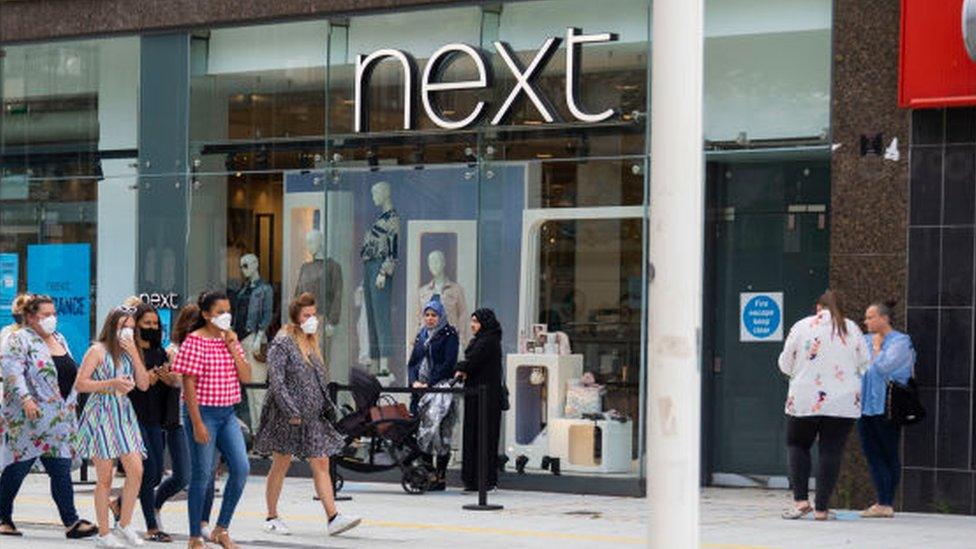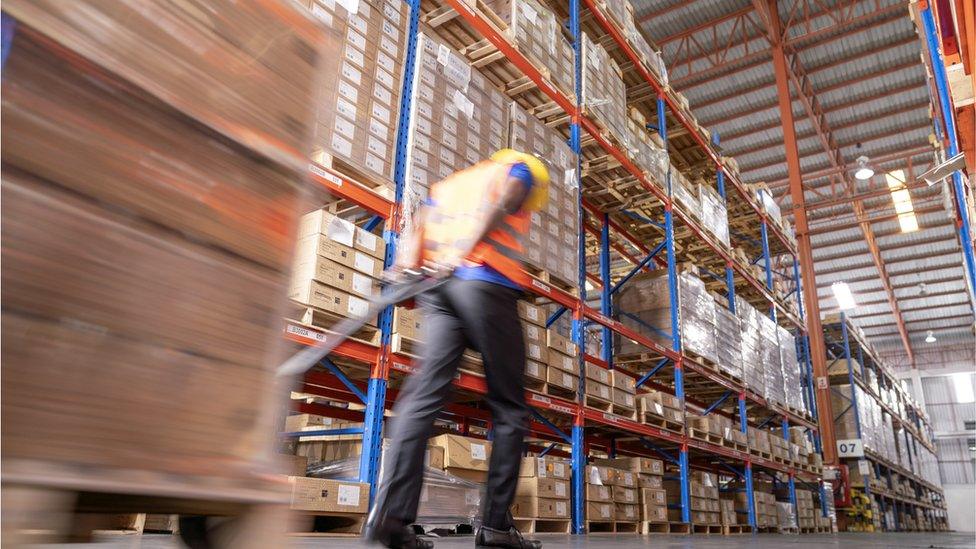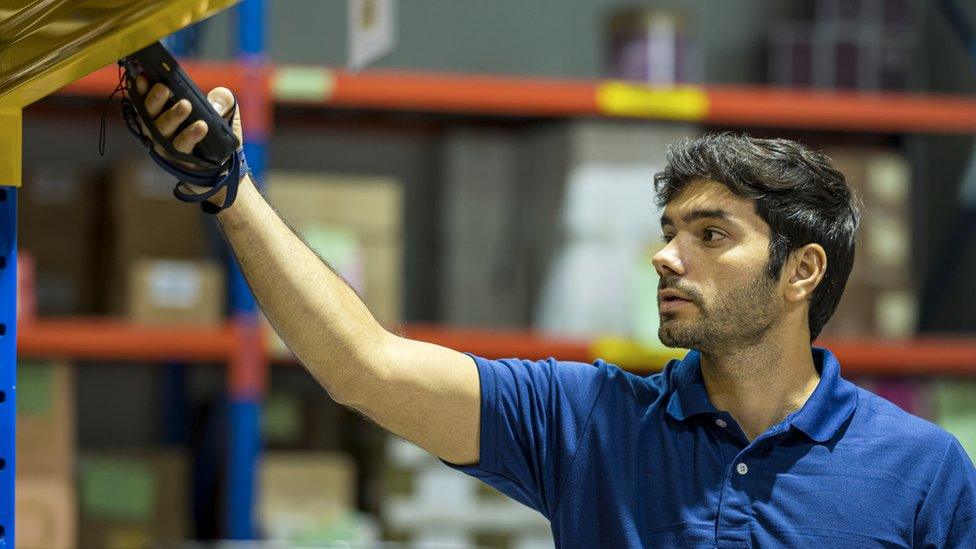Next warns sales will slow down over Christmas
- Published
- comments

Next says delays in supply chains, lorry driver shortages and "pent-up demand" diminishing will lead to sales slowing down over the Christmas period.
The retailer said sales had risen by 14% in the last five weeks, but forecasted they would only increase by 10% by the end of the year.
It said this was due to its supply chain being "compounded by labour shortages" in transport and warehouses.
However, the High Street chain has predicted a full-year profit of £800m.
In a trading statement, the company said stock availability had improved, but remained "challenging".
It added prices rises in "essential goods" such as fuel might "moderate demand" and reduce sales growth through the festive season.
"The effects of pent‐up demand are likely to continue to diminish," the company added.
Next said sales had increased 17% in the three months to the end of October compared with the same period in 2019.
Online sales were also up 49.5% in the year to October, while retail purchases were down 28.8%.
Steve Clayton, fund manager at HL Select said the "going is getting tougher" for Next, but said evidence suggested so far the company would "handle these issues better than most".
"There are near term challenges, but Next starts from a position of strength," he said.
"The company's comments about investing further into digital marketing, even as clouds gather, gives a clear message. Whatever happens in the months ahead, Next intends to emerge from the clouds with an even stronger position online."

Next has previously warned of its warehouse and logistics staff being under pressure.
Chief executive Lord Wolfson has said labour shortages could be solved by companies hiring overseas workers and paying a "visa tax".
He previously told the BBC seasonal workers were difficult to recruit.
Lord Wolfson suggested businesses could get visas for skills they "desperately need" and recommended that they should have to pay UK workers the same amount as overseas workers. To make this competitive, he argued businesses should have to pay a "visa tax on top - lets say 7% of wages".
Related topics
- Published6 October 2021

- Published6 May 2021

- Published29 September 2021
